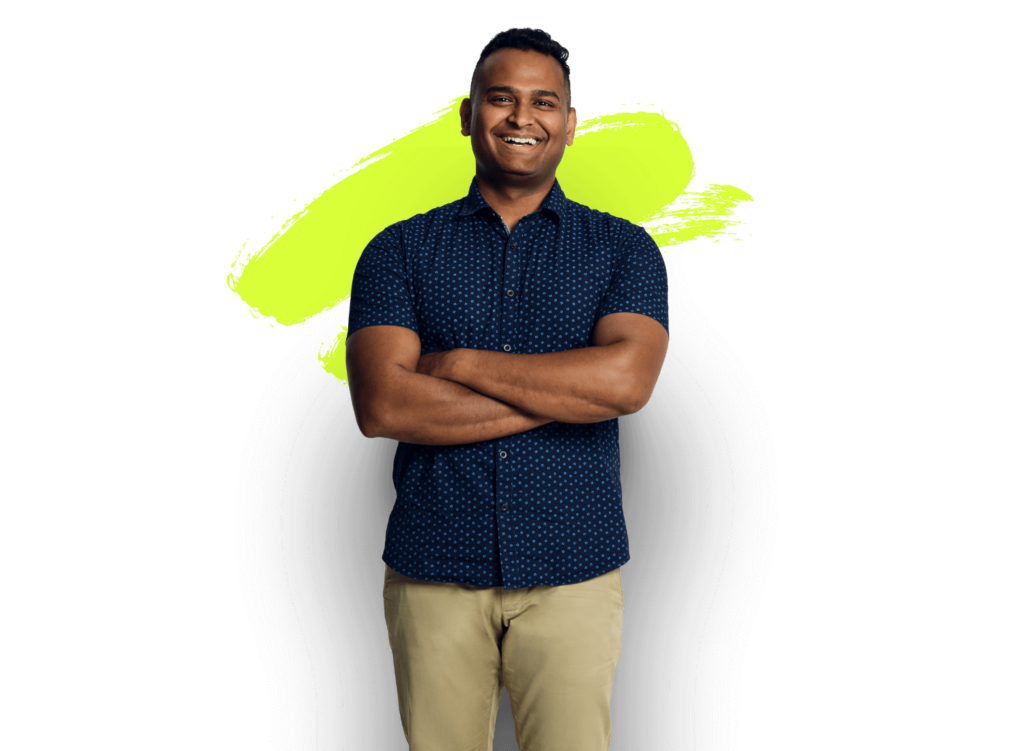Our Western Brisbane change makers hosted an ...
Continue ReadingTips to Improve Your Health and Wellbeing
Maintaining a healthy lifestyle is important for everyone. However, it can sometimes be more challenging for people with disabilities.
In this blog post, Physiotherapist Prakash Rathnam shares practical tips on what you can do to incorporate healthy habits into your life or support someone you care for. As a physiotherapist at Everyday Independence, Prakash helps people with disabilities to stay healthy and active, manage pain, and improve independence so they can participate more fully in everyday life.
The tips below are general, so speak to your healthcare provider for advice on what you can do safely to improve your health based on your individual circumstances.
Tips:

- To effectively work towards a long-term goal and maintain motivation, it can be helpful to establish smaller goals or milestones along the way. By identifying these smaller goals, you can track your progress and stay focused on your overall improvement in the desired area.
- Choose a simple action you can take daily to form a new healthy habit to achieve your goal.
- Physical activity is an investment in your future health and well-being. Even starting a new regime using a 7 min workout App or tailored home exercise program can help you to build physical activity into your daily routine. If a home exercise program isn’t feasible, consider alternatives like walking or a wheelchair ride.
- Engaging with your local community can greatly enhance your overall well-being. Consider group activities such as hydrotherapy, yoga groups, and volunteering which foster social connections and physical fitness.
- Get a good night’s rest. One in four Australians doesn’t have a quality sleep which is vital for brain performance, mood, and health. Removing distractions such as a mobile phone can help to relax and wind down before bed.
- Eating various nutritious foods is important for health and well-being. Making small changes to your diet can make building new, long-term eating habits easier. Are there small changes you can make daily, such as reducing the number of sugars in tea/coffee or adding at least one vegetable to your evening meal?
- To support brain health, join an art and craft class or become part of a local reading room group to stimulate your mind and support cognitive abilities.
- Adapt and discover what works for you. Explore alternative activities, engage with your community, and prioritise consistency. Whether it’s a walk, a group, creative pursuits, or stimulating your mind, countless options await you on your personal wellness journey.
We encourage and support people with disabilities to proactively look after their health and wellbeing.
Prakash – Physiotherapist
Regular exercise and physical activity
The benefits of regular exercise or physical activity are well documented. Doing 30 minutes of physical activity daily or 45 minutes of cardio and resistance training with some stretch three times a week can help to:
- Lower the risk of diabetes, high blood pressure, and cholesterol
- Help reduce depression and anxiety
- Improve weight loss and pain tolerance related to obesity
- Reduce the risk of some cancers
- Improve mobility and can reduce the risk of musculoskeletal injuries
- Exercise improves focus and attention, enhancing your performance and productivity in everyday life.
Wishing you all the best of luck on your journey towards better health and well-being. Remember, even small steps lead to significant transformations. Keep going!

